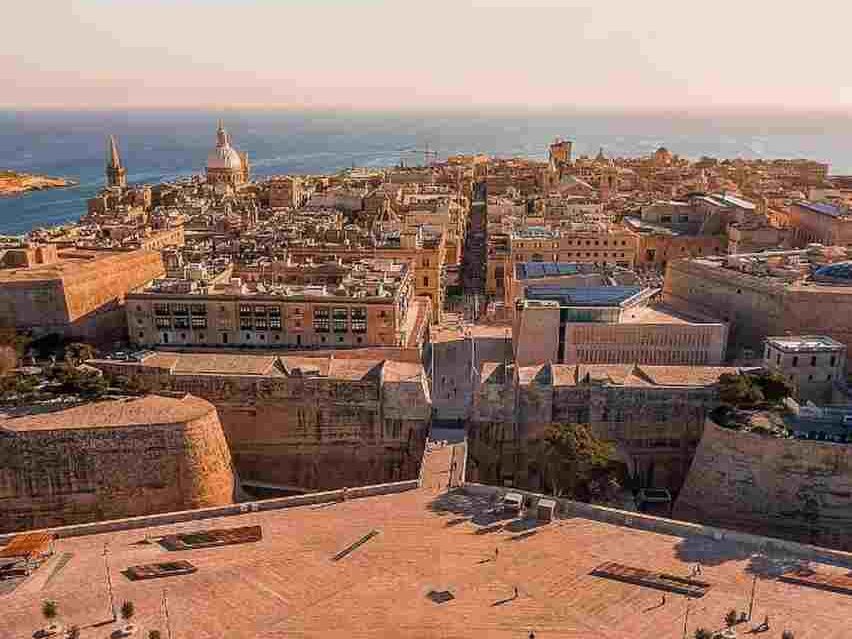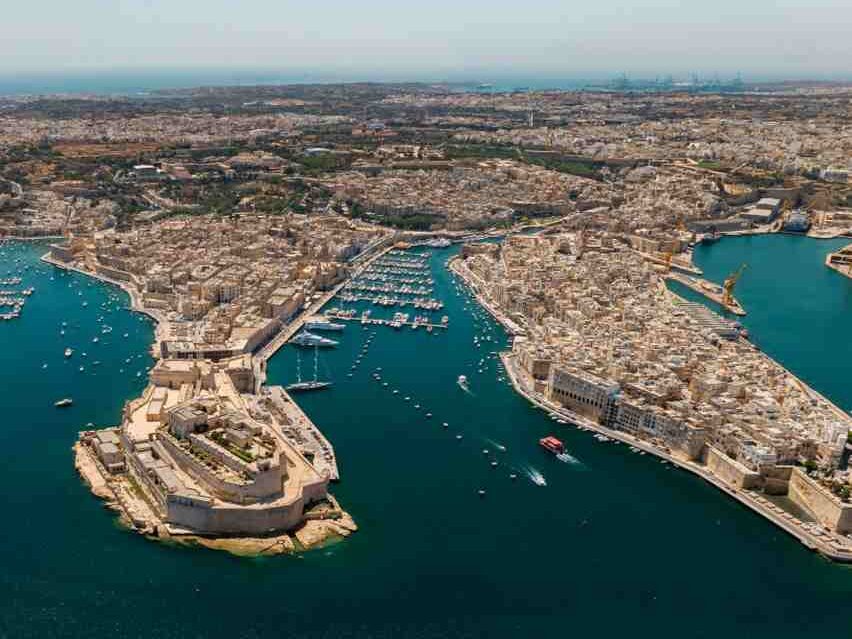Malta Permanent Residency Healthcare (2025 Guide)
Malta offers a reliable healthcare system for its permanent residents. This article explains Malta permanent residency healthcare, including steps for getting insurance, costs, and main requirements.

Benefits of Malta Healthcare for Permanent Residents
Malta’s healthcare system provides several benefits for permanent residents:
- Access to Quality Care: Ensures residents receive top-tier medical services in public or private facilities.
- Financial Protection: Permanent residents who contribute to Malta’s social security system have access to free public healthcare services.
- Peace of Mind: Provides security against unforeseen health issues for individuals and families.
Learn more from our guide about the benefits of permanent residency in Malta to see how healthcare fits into the broader advantages of residency.

Healthcare Services Available to Permanent Residents in Malta
Permanent residents in Malta can access important services, including:
- General practitioner and specialist consultations
- Emergency services
- Surgery and maternity care
- Oncology, psychiatry, and preventive healthcare
Note: Access to certain services may depend on whether the resident is using public healthcare services or private healthcare services.

Healthcare Costs in Malta
Healthcare costs in Malta are relatively affordable compared to other EU nations. Below are typical costs for common services:
- General practitioner visits: A consultation with a GP usually costs €15 to €30. This service is often the first step for treating common illnesses or getting specialist referrals.
- Specialist consultations: Visits to specialists (e.g., cardiologists or dermatologists) range from €30 to €80, depending on the clinic and complexity.
- Ultrasound: Ultrasounds cost between €50 and €200, with prices varying based on the facility and scan type.
- MRI scans: MRI scans are priced at €150. These services are offered at larger hospitals and private clinics, often requiring prior scheduling.
Insurance guarantees coverage for these services in either public or private healthcare facilities.

Requirements for Obtaining Health Insurance
To get health insurance in Malta as a permanent resident, applicants typically need to:
- Provide Personal Information: Include details such as age, medical history, and residency status, as these factors affect the policy’s cost.
- Choose a Policy Type: Basic plans start at €275 annually, offering limited coverage. Comprehensive plans, which include services like hospitalization, outpatient care, and preventive treatments, can get as high as €700 per year.
- Submit Necessary Documents: Provide identification, any required medical records to the insurance provider, and residency documents.
If you don’t have permanent residency yet, check out our guide on how to get permanent residency in Malta to get started. - Pay the Premium: Premiums must be paid in advance and are based on the selected coverage level and personal health details.
Read our full guide for a detailed breakdown of the overall costs of securing permanent residency in Malta, including health insurance.

How to Access Healthcare as a Permanent Resident
Accessing healthcare in Malta as a permanent resident involves the following steps:
- Secure Health Insurance: Confirm your policy meets the minimum requirements, including coverage for hospitalization and treatments in Malta and other EU countries.
- Register for Public Healthcare (if eligible): If you qualify for public healthcare, register with the local health authority. This option is typically limited to EU nationals or dependents of permanent residents.
- Use Private Clinics with Insurance: For private healthcare, use clinics and hospitals covered by your insurance plan. Check with your insurer for a list of approved providers.
- Carry Essential Documentation: Always carry your health insurance policy and identification when visiting a clinic or hospital. These documents are required to confirm coverage and eligibility.

Who Qualifies for Free Healthcare in Malta?
Residents contributing to Malta’s social security system qualify for free healthcare. Contributions include:
- Social Security Payments:
- Employees in Malta pay social security through payroll deductions, contributing a percentage of their salary.
- Employers also contribute on behalf of their employees.
- Employees in Malta pay social security through payroll deductions, contributing a percentage of their salary.
- Self-Employed Contributions: Self-employed individuals must make social security payments based on their income.
- Residency-Based Eligibility: Residents with long-term residency or employment contracts who contribute to the social security system may gain access to public healthcare.

Popular Hospitals and Clinics in Malta
Malta has reputable public and private healthcare facilities, including:
- Mater Dei Hospital (Public): Mater Dei Hospital in Msida is Malta’s largest public hospital, offering emergency care, specialist services, and surgeries. It is also a teaching hospital affiliated with the University of Malta.
- St. James Hospital (Private): St. James Hospital is a leading private provider known for personalized care, shorter wait times, and advanced facilities. Services include diagnostics, consultations, and surgeries.
- Gozo General Hospital (Public): Located in Gozo, this hospital provides essential inpatient and outpatient care, including emergency and diagnostic services. It serves as the main healthcare facility for the island.

Public vs. Private Healthcare in Malta
Malta offers both public and private healthcare systems, each catering to different needs. Here’s a detailed breakdown of what they offer:
- Public Healthcare:
- Eligibility: Accessible to EU citizens living in Malta, those with reciprocal health agreements, and those residents contributing to Malta’s social security system through work.
Check out our guide on how to obtain Malta permanent residence through a work permit. - Range of Services: Includes a wide range of medical services such as primary care, specialist consultations, and hospital treatment.
- Facilities: Services are provided through public hospitals, health centers, and clinics across the country.
- Cost: Free at the point of use for eligible residents, making it a cost-effective option for comprehensive medical care.
- Eligibility: Accessible to EU citizens living in Malta, those with reciprocal health agreements, and those residents contributing to Malta’s social security system through work.
- Private Healthcare:
- Speed of Access: Offers faster access to medical services, including consultations with specialists and elective surgeries.
- Quality of Care: Provides personalized care with shorter waiting times and more flexibility in choosing doctors or facilities.
- Facilities: Available through private hospitals and clinics equipped with modern facilities.
- Payment: Requires private health insurance or direct payment for services. For residency applicants, health insurance requirements vary; some programs mandate private health insurance, while others may not.
- Speed of Access: Offers faster access to medical services, including consultations with specialists and elective surgeries.
This distinction allows residents to choose between the affordability of public healthcare and the convenience of private healthcare, depending on their needs and eligibility.

Frequently Asked Questions (FAQs)
Do Permanent Residents Get Free Healthcare?
No, permanent residents in Malta get free public healthcare only if they contribute to the social security system through employment or self-employment.
What Is the Average Cost of Health Insurance?
Basic plans start at €275 annually, while comprehensive coverage can get as high as €700 per year.
Can Permanent Residents Use the EHIC Card?
No, the European Health Insurance Card (EHIC) is intended for EU nationals traveling within the EU. Non-EU permanent residents must rely on private insurance.
Let us guide you through the process so you don’t miss anything important. We provide assistance with health insurance requirements and related steps. Reach out today through our contact form to gain support with healthcare for Malta residency!






